The Welsh actor opens up about being the Dark Knight, never having a plan B, and always swimming against the current.
At the end of a warm spring day, as rays of amber sunlight flash off the ocean, Christian Bale arrives at a bar in Santa Monica. He’s wearing a baggy blue shirt, untucked, khaki pants, and New Balance sneakers. A black baseball cap is pulled low over his eyes, and the beginnings of a beard bristle along his jaw. He attracts little attention.
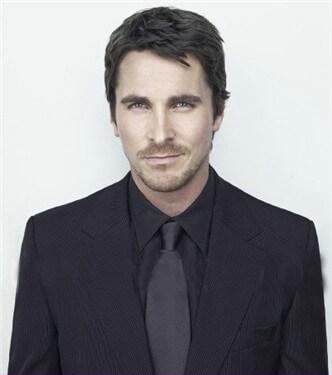
Apparently, despite having recently starred in a series of successful movies—including 3:10 to Yuma, The Prestige, and the lucratively resurrected Batman franchise—Bale stills finds it easy to go unrecognized. The Welsh-born actor, 34, has had only a few days’ formal training as an actor, in YMCA workshops as a child. But in the decades since he made his film debut in 1987, when, at 13, he starred in Steven Spielberg’s Empire of the Sun, he’s developed an uncanny ability to disappear into roles.
Some of his transformations have been infamously extreme—losing 60 pounds to play the guilt-racked skeletal protagonist in 2004’s The Machinist; others have been less demanding, like adopting an aggressive way of walking to play a Gulf War veteran in Harsh Times. His intensive approach hasn’t changed, despite the birth of his daughter (Bale and his wife, the former producer Sibi Blazic, were married in 2000), whom, at six months, he took deep into the Thai jungle while he worked on Werner Herzog’s Rescue Dawn. And his presence at the center of a vastly profitable series of superhero pictures isn’t indicative of a shift in attitude either. “I’ve never believed in being an ‘indie’ actor versus a ‘studio movie’ actor—I’ve always liked the idea of doing all of it,” he says. “I’ve always had,” he admits, “a slight sense of wanting to swim upstream.”
What did you think when you first saw yourself in the Batsuit?
I was standing on the back lot where they were creating the suit, and I had a few minutes to myself, staring up close in the mirror, just thinking, “This isn’t going to work. I’m claustrophobic, I can’t breathe, I’m getting a headache already, and this is all going to go very badly.”
What persuaded you otherwise?
I just said to myself, “Breathe deeply for a few minutes. Try this out. Don’t run around yelling and making an ass of yourself trying to pull the whole thing off.” I wasn’t going to get it off by myself. It takes three people. I just had flashes of what an asshole I would feel like saying “Well, I wasn’t able to play that character, because I panicked every time I got in the suit.”
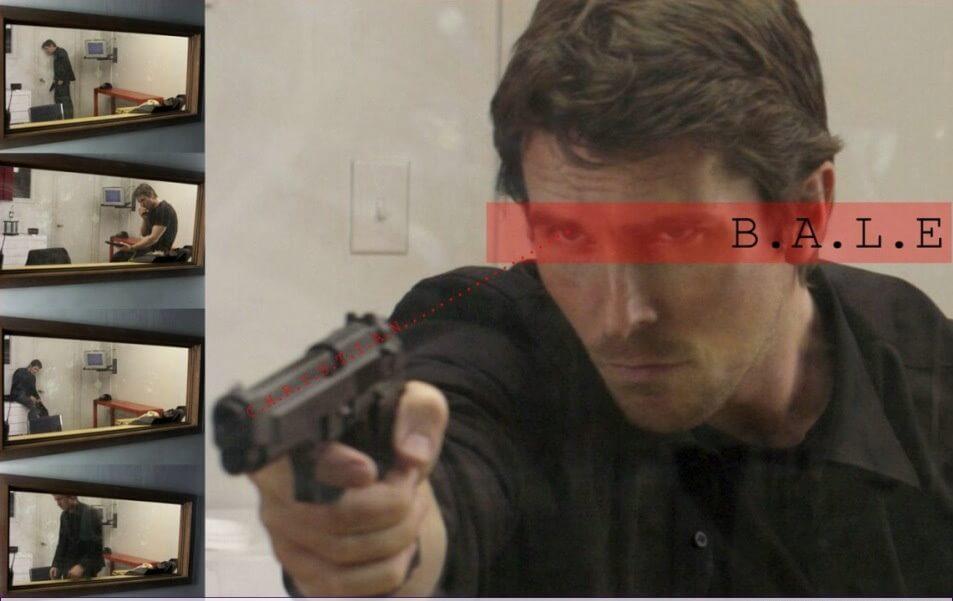
You’ve played a wide variety of characters, but very few of them have been happy-go-lucky. Are you attracted to darkness?
Certainly I have no attraction to misery. I don’t intentionally go for dark. The only thing I would unequivocally say is that I have never had any interest in romantic comedy—I just couldn’t do it. I think I’d be terrible. And I think it’s an oxymoron, anyway. I’ve never found any of them funny.
Michael Caine has talked about the intensity of Heath Ledger’s portrayal of the Joker in The Dark Knight. How did you find working with him?
He was incredibly intense in his performance but incredibly mellow and laid-back. Certainly there was this great anarchistic streak to it—just getting dirtier than anybody’s envisioned the Joker before. This character has power because he has no limits—absolutely nothing to lose.
How has Ledger’s death changed the way you look at the film?
Naturally it was something I wanted to share with him—and expected to do so. And I can’t do anything else but hope that it will be an absolutely appropriate celebration of his work.
I’ve gotten the impression that some of the things you’ve said about yourself in the past—that one of your grandfathers was a bomber pilot and the other one was a children’s magician . . .
. . . I make up. Absolutely. I’m an actor—I’m not a politician. I always kick myself when I talk too much about family, or personal things. I’ll enjoy chatting now, and then later I’ll regret it.
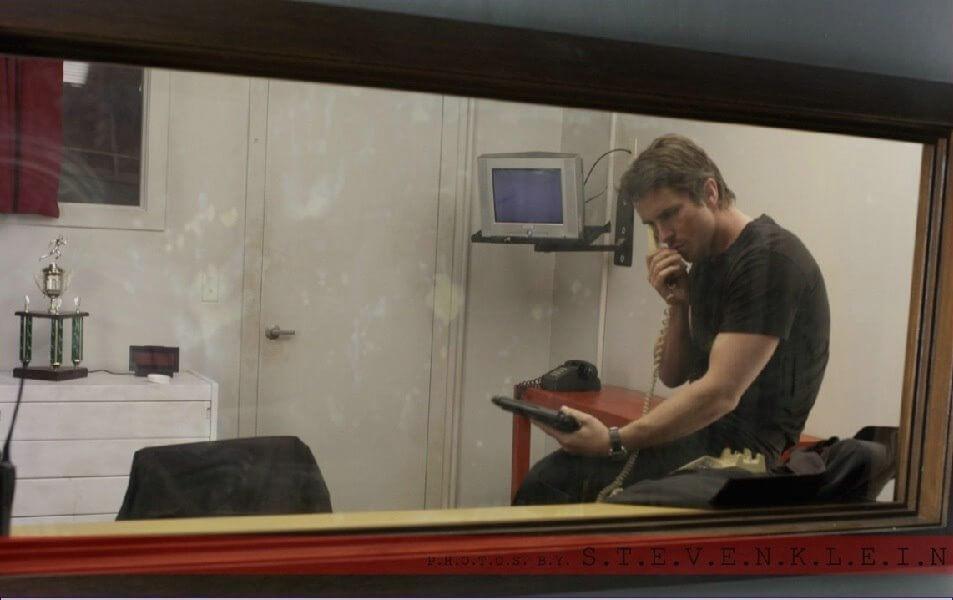
In the past you’ve said you sometimes start telling people stories about things you did as a kid and then realize that you never actually did those things.
To be honest, it happens a lot. There are so many things which, even knowing that it was in a movie, I still feel like I’ve been through. And then I have to really rack my brain to work out “Have I actually been through that in my life?” There are occasions when I’ve pretended to be in a firefight, and then there are people who have really been in a firefight. Clearly it’s absolutely ridiculous, and even disrespectful, to suggest that I understand what that is. And it deserves a very hard smack across the face for any actor to ever suggest that they understand. But the power of delusion is incredibly strong.
As a kid, you moved 15 times in 15 years. Did that make you want to live an unconventional life?
That actually didn’t seem so unconventional. It just seemed like that was the way it should be done. I never felt the desire to have an unconventional life—it was more just a recognition that I probably didn’t want that other thing.
What other thing?
[Having] no way out. . . . I was always used to being able to pick up and leave.
When you were filming Empire of the Sun, did you have a sense that it was the beginning of your career as a movie actor?
I never for a second considered that anybody would watch the movie. I never thought about any consequences of it. I didn’t care. I got to go to China, I got to go to Spain. I got to jump around and have planes fly a few feet over my head.
At that age, what were you doing when you weren’t acting?
I was living quietly in Bournemouth [England] like any other teenager. Well, I’ll rephrase that: Most of the time I was like any other teenager. And then there were times I’d be reminded that some people actually didn’t agree with me on that, and felt like I was a little different and didn’t really belong. Apparently you become something other than human once you’ve been in a movie.
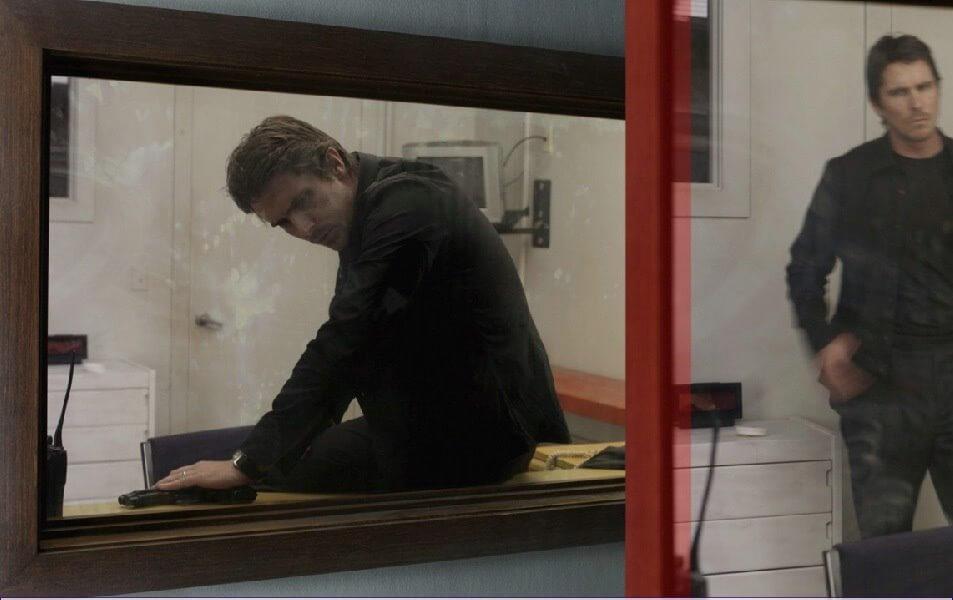
Taking the role in American Psycho was widely regarded as career suicide.
Yes. I always enjoyed the idea of self-destructing on purpose, taking something that was important to me—acting—and just becoming unhireable. To test how important it really was for me. [American Psycho] turned out to be the opposite. That brought me much more work.
What would you have done if things hadn’t worked out?
I have no idea. [Laughs.]
There was no plan B?
There never has been, no.
Was there ever a time when you were in danger of not making enough money to support yourself through acting?
I don’t believe that there’s an actor alive who hasn’t been in that position—and in that position many years after people recognize you and have a very wrong impression of what they imagine your lifestyle to be.
Do you remember the last time you were in that position?
[Long pause.] I know absolutely when it was; I’m just trying to decide how comfortable I am talking about it. Certainly . . . what year are we in? 2008? Only going back five years. Absolutely, yeah. House repossession—all that.
House repossession?
Yeah—but I don’t want to talk about it anymore.
Have you ever done anything just for the money?
Movies? Um . . . well, I guess there was one particular time—and I won’t tell you what it was—but it was following closely on the heels of the other thing that I didn’t want to talk about very much. It ended up that I found a great many experiences from it—but the motivation was completely keeping the head above water, yes.
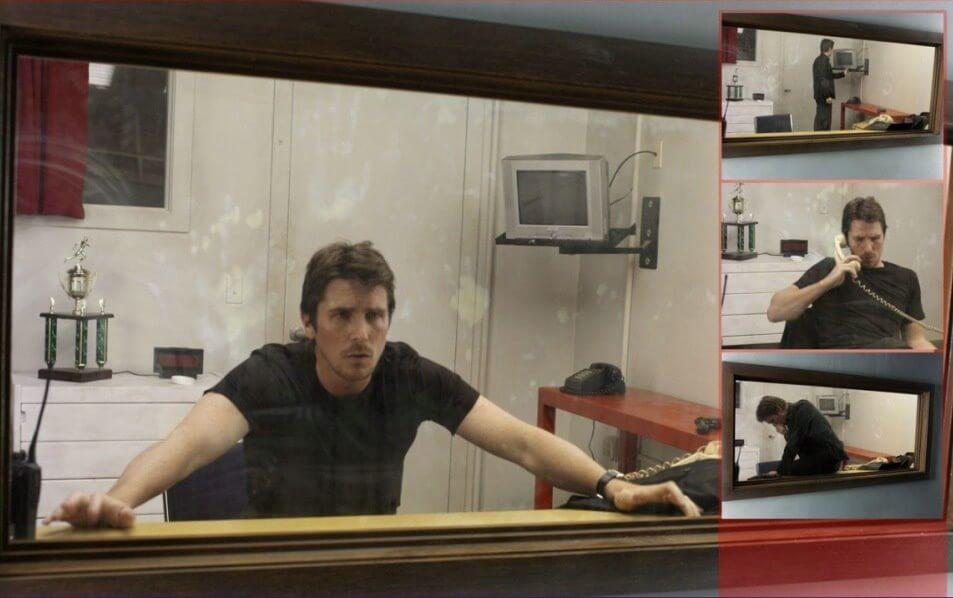
When you made The Machinist, did you intend to lose 60 pounds?
No, there was never that plan. It just took a lot longer to get the money together than I expected, so the [start] date kept getting pushed back. I kept losing more and more weight.
The weight in the script was 121 pounds.
I was standing on these scales and it said 121 pounds. And Brad [the director] came up and moved the little dial up to 135, because he said nobody would believe it. And I said, “Screw you, man. I am 121 pounds!” At a certain point, you do start to lose a sense of quite how skinny you’ve become. Because it’s so slow, it ceases to be a shock anymore. It became “Well, this is me now.”
While you were on location for Rescue Dawn, you hung from the skids of a helicopter as it flew over the jungle. What do you think is the closest you’ve ever come to death while working?
There’s a sense of invulnerability when you’re making a movie. I’ve been in situations where things could have gone very wrong. I saw a number of very anxious faces on The Dark Knight when a helicopter came incredibly close to me. I was standing on the corner of the Sears Tower, on the outside, 110 stories up. I felt quite oblivious to it. I was looking at the face of the pilot and just hanging there, not fully aware that the blades were actually just feet from my head.
Which character that you’ve taken home with you has your wife liked least?
I’d say Jim [the war veteran with post-traumatic stress disorder in Harsh Times]. There were probably not a lot of wonderful memories about him. He’s not getting invited back any time soon.
What about the one she’s liked the most?
That’s quite surprising—any time Trevor from The Machinist wants to come around the house, he’s always welcome.
Has starring in a blockbuster had any noticeable impact on your personal life?
I was at the Science Museum in London with my daughter and some of her friends, and they wanted hot dogs. And so I went up to a hot-dog stand and I said, “Can I have three hot dogs?” They said, “I’m sorry, we’re closed.” And so I started walking away. And then one of them said, “Excuse me, are you Batman?” And I said, “Well, I play Batman.” And they said, “Well, here’s three hot dogs—on the house.” That’s pretty remarkable, isn’t it?
When was the last time you were mistaken for someone else?
Yesterday afternoon I was sitting somewhere and somebody started chatting. They said they were an agent, and they asked what I do, and I said, “I’m an actor.” And they said, “Oh, how’s that going for you?” I said, “I think it’s all right.” And they said, do I have an agent?
“Yes, I have an agent.”
“Well, if you ever need any help getting work, give me a call.”
So I said, “Thanks very much.” I think the best one ever was when a casting director saw me in a hotel lobby and practically ran at me, holding a script: “I’ve finally found you! We have this movie that you’re perfect for, and this is an amazing coincidence. The director and producer are not going to believe it, that I just bumped into you! We’ve been talking about how perfect you are for this role for so long! Finally, I met Christian Slater.”
“Christian Bale.”
“Excuse me?”
“I said, ‘Christian Bale.'”
And she went, “Oh, I’m sorry,” took the script, and walked away.
How good do you think you are at being famous?
I don’t really understand the question. Because there are people that you would undeniably call famous, and I’m not. You can go to many, many people and say “Christian Bale” and they have no idea who the hell you’re talking about. They might have seen a number of my movies, but they’ll still have no idea who you’re talking about. So I don’t think I’m qualified to talk about fame.
However you’re dealing with it, you’re doing it very well—but I can’t really work out how you’ve managed that.
I can’t either. I figure that if it’s going well, and I haven’t figured it out, well—maybe I shouldn’t.